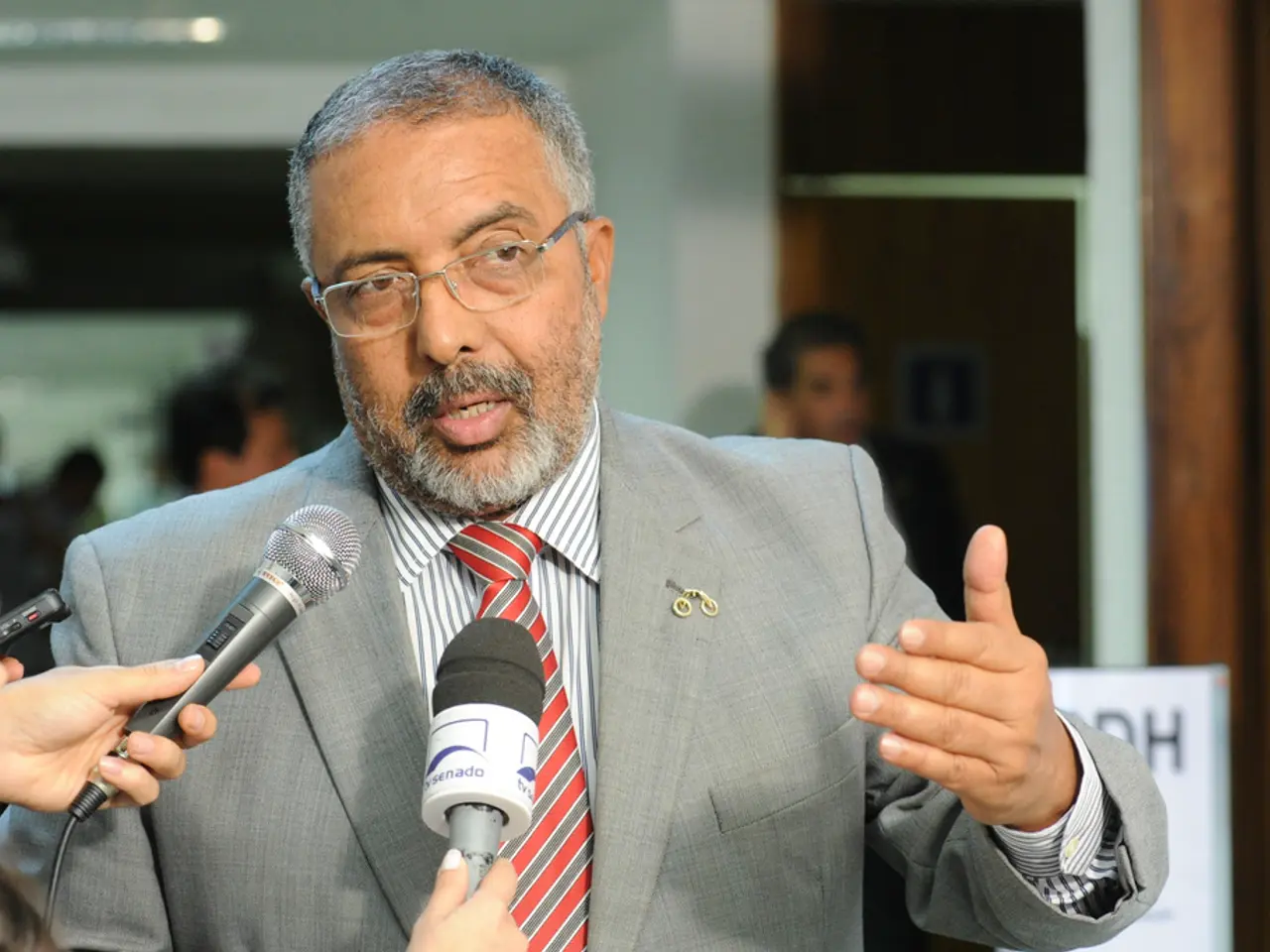Debate arises over employing AI technology to mimic the late actor's voice in a movie production
In a groundbreaking move, ElevenLabs, an AI voice generation specialist, has collaborated with Lumiere Ventures to recreate the voice of the iconic French dubbing artist, Alain Dorval, for the upcoming film Armored, scheduled to release on Amazon France in March 2025. However, this project has sparked controversy and reactions from some voice actors and Dorval's own daughter, Aurore Bergé.
Bergé, who is the Minister of Equality between Women and Men in France, has publicly expressed her dissatisfaction with the project. She claims that her consent was not received for the public release of the voice reproduction, a concern shared by other voice actors such as Donald Reignoux, known for interpreting the French voices of Titeuf, Spiderman, and Harold.
The collaboration follows Dorval's death in February 2024, and the project aimed to recreate his distinctive voice that was widely recognized for dubbing Sylvester Stallone. A trailer for the film has been released, but it appears that the quality of the voice reproduction is not as promised, fueling the controversy.
Bergé has defended her father's legacy in the context of the AI voice reproduction for the film Armored. She believes that the project could potentially lead to the destruction of the job her father loved, a sentiment echoed by voice actors who see this as a form of identity theft and a threat to their profession.
The voice acting community has reacted strongly against such AI voice recreations, arguing that their voices represent a core part of their identity and livelihood. They fear unauthorized use of their voices for AI training could lead to job losses and exploitation without proper consent or compensation. This has sparked campaigns worldwide demanding legal protections and legislation to prevent the unauthorized AI replication of their voices.
The controversy highlights ethical issues around consent, intellectual property, and the future of voiceover work in the age of AI. The project was undertaken in partnership with Dorval's family, who agreed to the use of AI under the condition that the quality of the voice reproduction is respected. However, the controversy raises questions about the boundaries of AI's role in recreating human voices and the need for clear guidelines to protect artists' rights.
[1] Voice actors and unions demand protections against unauthorized AI voice cloning. [2] Ethical concerns arise as AI voice synthesis technologies advance.
- The advancements in artificial-intelligence technology have sparked conversations among voice actors and unions about the need for legal protections against unauthorized AI voice cloning, as the quality of AI voice recreations could potentially threaten their job security and identity.
- As technology progresses, the ethical implications of artificial-intelligence voice synthesis are becoming increasingly relevant, with some entertainment industry professionals expressing concerns that AI voice generation could encroach upon the rights of voice actors and disrupt traditional voiceover work.




